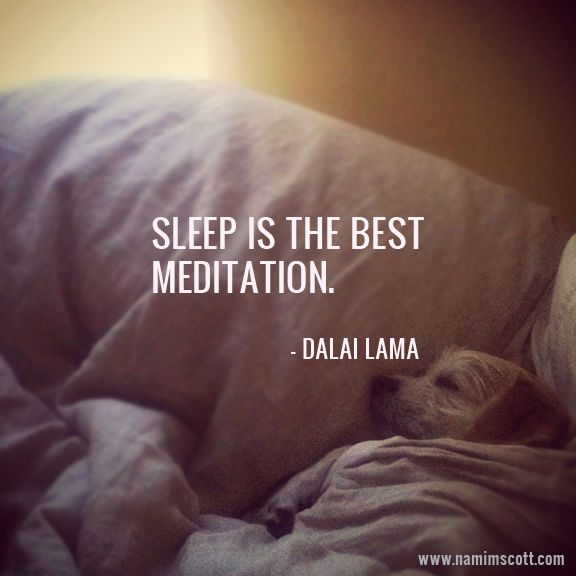Sleep is something that is absolutely vital for us to be able to restore our bodies and minds. Without proper sleep, problems with concentration, reaction time and awareness can occur very easily, and most of us notice these immediately. Not only that, the Sleep Foundation notes that lack of sleep is also linked to the risk of motor vehicle accidents, increase in body mass index, increased risk of heart problems and an increased risk of psychiatric conditions, including depression and substance abuse. Unfortunately, we still don’t get to bed on time, if at all. So how do you make time to sleep enough? And alternatively, how do you feel better faster if you don’t?
Many college students and young professionals have a difficult time getting as much sleep as is needed, often catalyzed by various responsibilities and time management. Additionally, college tuition is forever on the rise, so more and more students are finding they have to eliminate something to make time for a job, extracurricular activities, and social interactions; generally, that ends up being sleep. However, problems like insomnia or sleep apnea may also disrupt normal sleep cycles.
So how much sleep is enough to keep up with the dichotomy of academic and social lifestyles?
In the past, eight hours seemed to be the magic number, but researchers are finding that it is relatively subjective. The Sleep Foundation has identified two main factors in everyone’s sleep needs: basal sleep (how much a person needs to function) and sleep debt (accumulation of sleep lost). Sleeping too little can directly inhibit your productivity and ability to consolidate information. Though sleeping too much may also negatively affect these functions, sleeping less is significantly worse. Ideally, sleeping in the range of 6.5 to 9 hours is the best (though some Goldilocks-inspired trial and error may be needed to find the best amount).
If there’s no way to get sufficient or quality sleep one night (keep insufficient sleep from being a habit), the best, most effective thing a person can do is to go about their schedule normally & try to go back to their routine as soon as possible. Additionally, coffee is a good idea, but in moderation. It’s important to drink plenty of water as well; excess coffee can dehydrate you and make you feel even more sleep deprived. To avoid this, drink water proportionally to coffee intake.
Most people agree that naps also help relieve some of the stress of sleep deficiency, but they have to be properly used.
Researchers agree that naps more than 30 minutes are actually detrimental, whereas between 20-30 minutes are the most effective and can restore alertness. Keep in mind that coffee takes about half an hour to take effect, so taking a nap and drinking coffee right before might do double duty after a less-than-restful night.
The good news is that it seems that quality, not quantity, is what you should go by. Though, in a perfect world, both would be doable but if one prevails, it’s quality. More than anything, it’s important to create a strong repetitive schedule of sleep (yes, even on the weekends) and get good sleep. That is, no distractions, relaxed and regular bedtime routine, and a sleep-conducive environment. Staying healthy in conscious life is also a benefit. Not abusing caffeine intake, eating earlier in the day, and getting regular exercise can empower your sleep. Most importantly, sleep should be made a priority, so when you can help it, put sleep first.
Mariya Rakutko is a junior at the University of Colorado and a staff writer for CollegeFocus, a website dedicated to helping students deal with the challenges of college, including housing, finance, style, health, relationships, and transferring from a community college to a four-year university.





